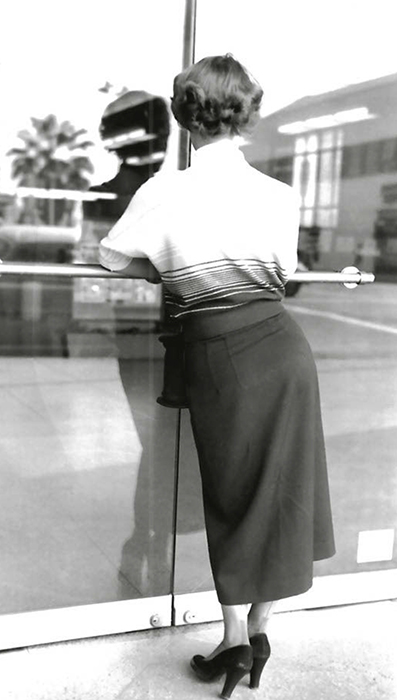
Early 1950s
LISA SEE
Her parents called her Pennie, a name she hated because it made her feel worthless. Apart from that—and from her own telling—my mom’s early childhood was happy. Her father was a newspaperman; her mother was beautiful. The house was filled with books, music, interesting people, and lots of alcohol. Then, in the same week that the atom bomb was dropped on Hiroshima, my grandfather walked out. My grandmother, who, even in the so-called happy days, had a mean streak, couldn’t stop crying, blamed everyone—especially Pennie—for what had happened to her, and turned forever into an angry drunk and cruel woman. My mother was eleven, and she had nowhere to go, no way to escape. Oh, her father was out there. He had taken the books, music, and friends but not his daughter with him.
When my mother turned seventeen, Evil Grandma Kate, as we called her, married a man who was her equal: a mean drunk. He burned nearly every photograph of my mom and then kicked her out of the house. I always thought it was strange that my grandfather didn’t take in his daughter, but he had bigger—or better—fish to fry. He’d become one of the earliest members of Alcoholics Anonymous and had married a woman so high up in AA that her story appears in the Big Book. No one had room for Pennie, and she went to live by herself in a furnished room. She relied on friends for food and companionship and to borrow sweaters, blouses, and skirts—perhaps even what she’s wearing in this photo, one of a handful that exist before she married my father.
My mother put herself through school. She married when she was twenty, had me a year later, and got divorced two years after that. Sometimes we try to emulate our parents but fail miserably. Sometimes we try to escape them, and believe we have, only to find out we haven’t. It comes down to that old question of nature versus nurture. I saw in my mother traces of Evil Grandma Kate, but my mom channeled her fury into her ambition and need for survival. It fueled her and kept her going when the world was saying she was worthless and unwanted.
From her dad, my mother embraced all that he’d taken with him back when she was eleven—books, music, and interesting friends. She wanted to be a writer like her father and in time would follow his advice to write a thousand words a day. (I’m now the third generation to do that.) By the time of her death nearly three years ago, my mother was no longer Pennie Laws. She was Carolyn See, the author of eleven books, a prominent critic, an esteemed writing professor, and considered by many to be the Grand Dame of Southern California Letters. A worthless penny had turned into someone admired and treasured.